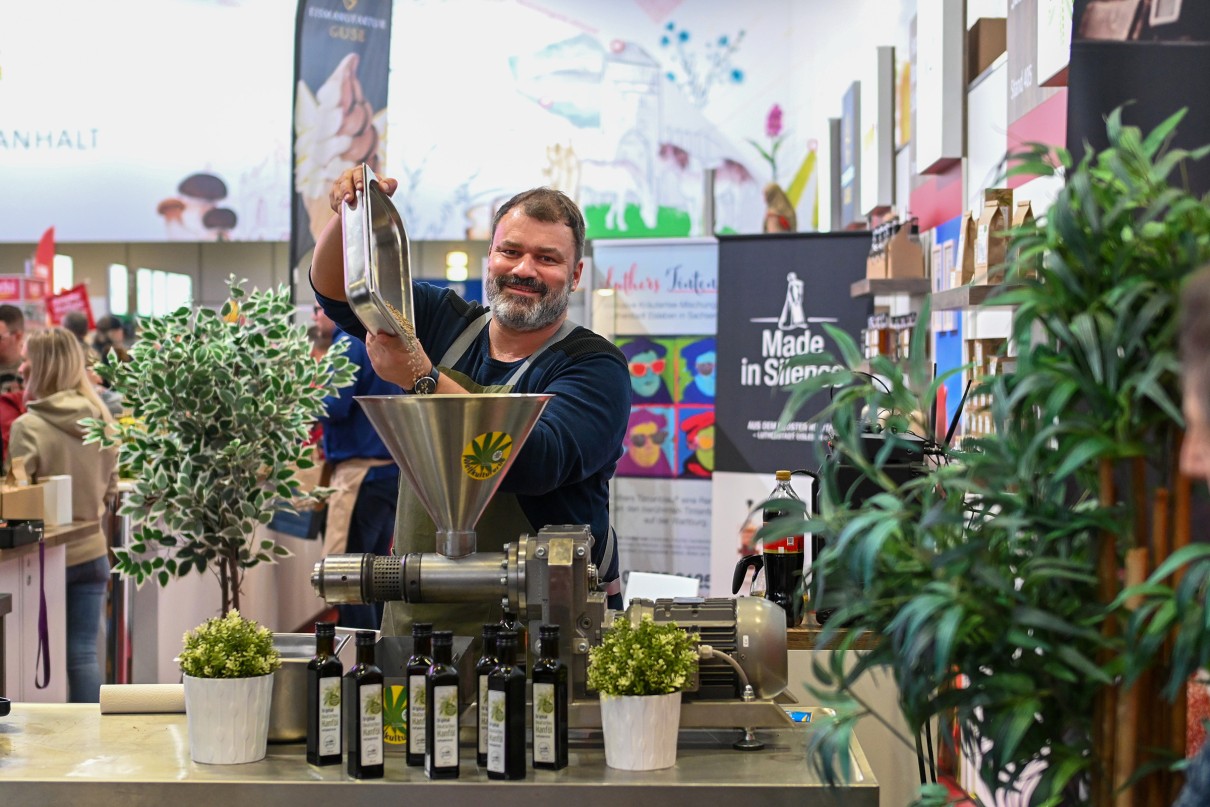Page content
Unusual sources of protein
Professor Dr Wolfram Schnäckel from Anhalt University of Applied Sciences has brought his research objects with him in a terrarium: vineyard snails – a delicacy in France and Italy. “We asked ourselves why they have not yet established themselves as a food in Germany,” he explains. “The meat is rich in protein and the animals are frugal. They can be bred in the region without a lot of space and effort.” His animals come from a farm in Tangerhütte in the Altmark region, where the university cooperates with a snail farm.
In his research project, Wolfram Schnäckel developed various high-quality snail-based foods. He serves snails with turmeric-flavoured snail pâté on a tray. But this is just one way of utilising the snails. The slime produced by the animals is good for the skin. It can be used in the cosmetics industry or to heal wounds. There are even uses for the snail shells: The calcareous material could be processed into food supplements.
Pulses from the resin
One stand further on, Jonas Schulze Niehoff stands behind a chickpea plant. The farmer has been growing them successfully since 2018 - climate change makes it possible. "Our farm is located in the rain shadow of the Harz Mountains. So we usually have quite mild weather," he says. He sells the harvest to unpackaged food shops, among others. Legumes are interesting for farmers: they have the ability to naturally bind nitrogen and feed on it. They are often grown in rotation with winter rye.
As a supply chain expert for chickpeas, Isabella Krause is working on behalf of the state of Brandenburg to ensure that more chickpeas are grown in the region. "The chickpea is robust. It also copes well with little water and high temperatures," she says. As a plant-based source of protein, it can also be an important component of a healthy, climate-friendly diet.
Fish eggs with a luxury factor
The caviar at the Attilus stand is a real delicacy. The company from Jessen an der Elster has been breeding sturgeon in water-saving aquaculture since 2008. "After seven to nine years, we slaughter the females and remove the bags of roe," explains operations manager Tharwat Attallah. The eggs are washed and pickled in salt. The caviar then matures in the warehouse and is finally sold in elegant gold and black tins. One gram costs an average of one euro.
At the Hemp Germany stand, Managing Director Ronny Sievers starts up the oil press three times a day. Guests can then see how high-quality hemp oil is produced. The robust plants are grown in fields in Saxony-Anhalt. They are resistant to pests and bind CO2. Hemp Germany offers protein-rich roasted hemp nuts in various flavours. There are biscuits, baking mixes and hot chocolate, in which only the slightly medicinal aftertaste reveals that it contains hemp oil. "Even though the benefits of hemp products are becoming increasingly well known, we still have a lot of pioneering work to do," says Ronny Sievers. He is convinced that the plant has a future in Germany.



